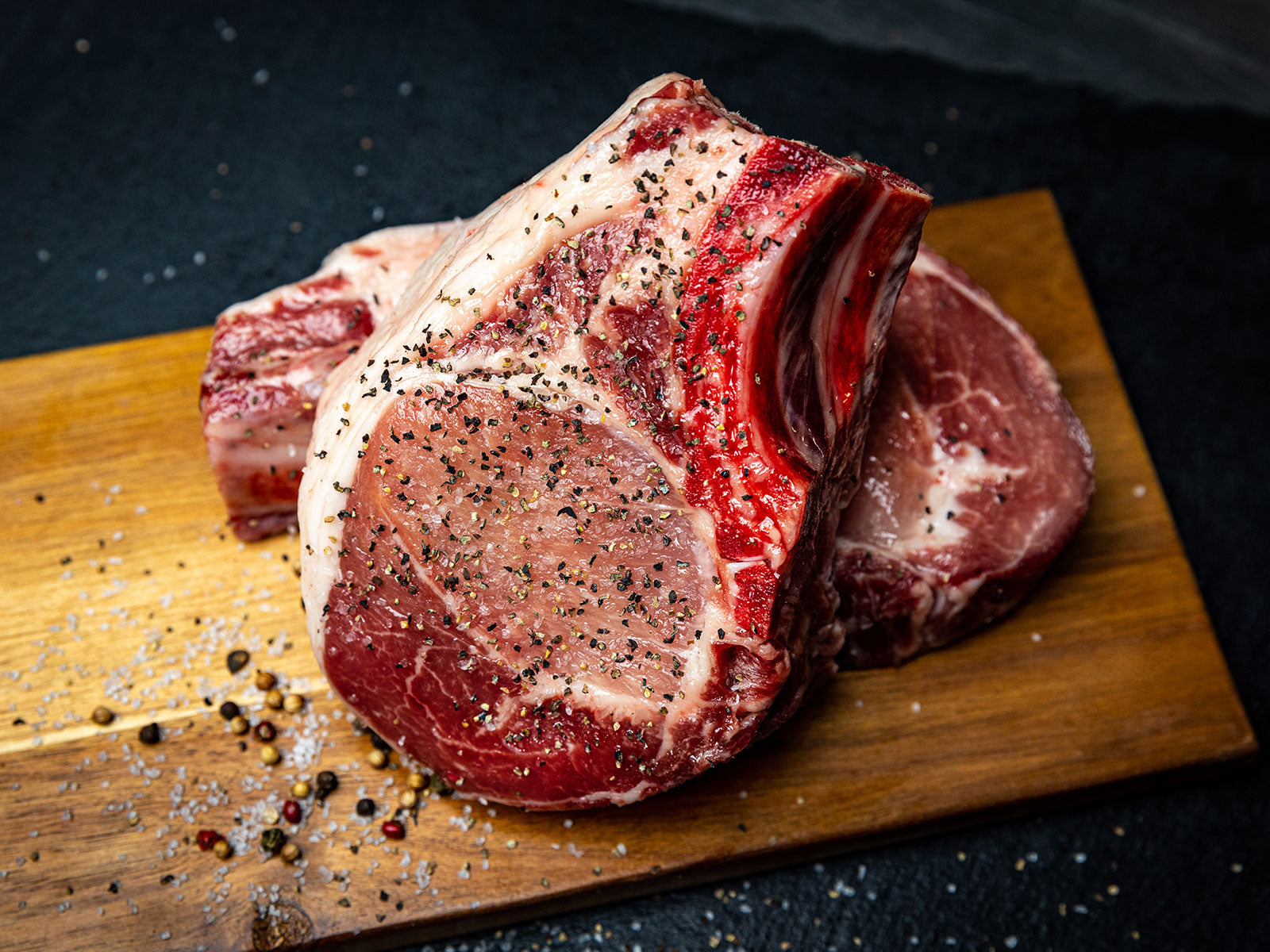Bone broth protein has been gaining popularity among health-conscious individuals, and for good reason. Packed with essential nutrients, it supports your immune system, promotes joint health, and enhances digestion and skin vitality.
But is it as beneficial as people claim? Look closer at what is bone broth good for, its potential health perks, and whether it fits your wellness routine well.
Ready to experience the benefits? Start incorporating bone broth into your diet today and nourish your body from the inside out!
Does Bone Broth Have Protein?
Bone broth is a nutrient-rich liquid made by simmering animal bones, ligaments, and tendons under high pressure and heat. This process extracts essential compounds like chondroitin, glucosamine, and hyaluronic acid, which are beneficial for joint health. In addition to these nutrients, bone broth is also a good source of protein, which comes from the collagen in the bones and connective tissues.
The protein in bone broth helps support healthy skin, joints, and muscles. Typically made from chicken bones, bone broth can also be made from grass-fed beef or fish bones, offering various options to suit different dietary preferences.
The resulting broth is a delicious, nourishing liquid that can be enjoyed on its own or used in soups and recipes.
Protein Content
Bone broth is packed with various nutrients, making it a popular choice for those looking to boost their overall health. Here’s a look at the nutritional breakdown of one serving (about 22 grams) of a typical bone broth protein
-
Calories: 85
-
Protein: 20 grams
-
Carbohydrates: 0 grams
-
Fat: 1 gram
-
Potassium: 6% of the Daily Value (DV)
-
Sodium: 6% of the DV
In addition to protein, bone broth is a great source of collagen, which supports skin, joints, and gut health. It also contains glycine, which aids in muscle recovery, and compounds like chondroitin and glucosamine that promote joint health.
However, the exact nutrient content can vary widely depending on several factors, such as:
-
Cooking time and temperature
-
The type of bones used
-
The ratio of bones to water in the recipe
-
Whether enough acid was added to help extract nutrients from the bones
Since these factors impact the final product, the nutrition label may not always provide a precise breakdown of every beneficial compound found in bone broth protein.
5 Proven Health Benefits of Bone Broth
Let’s explore the health benefits of bone broth and how it can support joint health, reduce inflammation, and aid in overall wellness.
1. Promotes Joint Health
Collagen is a key protein that helps maintain the structure of your skin, bones, tendons, and ligaments. Protein-rich foods may support joint health and even help with conditions like osteoarthritis, where the protective tissue around joints wears down over time.
Bone broth naturally contains collagen, which may aid in joint repair and help reduce arthritis-related discomfort. However, most research on joint pain relief focuses on collagen supplements rather than bone broth.
It’s also worth noting that bone broth may not have as high a concentration of amino acids like glycine and proline as collagen supplements. These amino acids are essential for building connective tissues, such as tendons (which attach muscles to bones) and ligaments (which connect bones).
Additionally, many bone broths include anti-inflammatory ingredients like turmeric and other healing herbs and spices. These compounds may further support joint health by reducing inflammation, which can contribute to pain and stiffness.
2. Supports Gut Health
Bone broth is a good source of glutamine, an amino acid that helps support the structure and function of the tissue lining your gastrointestinal tract. It may also help reduce inflammation in the gut.
Although studies on the specific effects of glutamine-rich bone broth on the gut microbiome are limited, consuming glutamine from natural sources is generally considered safe. High-quality bone broth can be a nutritious, anti-inflammatory alternative to processed proteins like deli meats, bacon, or sausage.
3. Boosts Skin and Hair Health
Collagen is vital in maintaining skin elasticity, hydration, and a youthful look. The amino acids in bone broth, like glycine and proline, help boost collagen production, reducing wrinkles and improving skin texture.
Collagen supplements can enhance skin elasticity and hydration and reduce signs of aging. Bone broth offers a natural source of these nutrients, helping you achieve a healthy, glowing complexion. Plus, the protein and minerals in bone broth may help strengthen hair and nails, reducing brittleness and breakage.
4. Strengthens the Immune System
The small intestine is responsible for nutrient absorption and is a key part of your immune defense. If the gut barrier becomes damaged, it can impair immune function. The amino acids in bone broth may help protect and support gut health.
5. Aids in Detoxification
Bone broth aids the body’s natural detox processes, especially in the liver. The amino acid glycine helps the liver break down and remove toxins, reducing the overall toxic load on the body.
In addition, bone broth provides essential minerals that support kidney function, helping to flush out harmful substances. Regularly consuming bone broth may boost the body’s detox capabilities, leading to more energy and better overall health.
How to Incorporate Bone Broth Into Your Diet
Bone broth is a flexible ingredient that can be enjoyed in many ways. Here are some ideas to help you easily add it to your diet:
-
Sip on bone broth like a warm, comforting cup of tea for a nourishing snack.
-
To enhance the flavor, cook whole grains like brown rice, quinoa, or farro in bone broth instead of water.
-
Use bone broth as a base for homemade soups and stews to give them a rich, savory taste.
-
Mix bone broth with coconut milk and spices to create a delicious foundation for homemade curries.
-
Add bone broth to your smoothie for a protein-packed and nutrient-dense twist.
Bone broth can be made from beef, poultry, fish, or animal bones. Each type has a distinct flavor, so you can choose according to your taste preferences or the recipe you’re preparing.
Conclusion
Bone broth could be a great choice for those looking to enjoy the benefits of bone broth in a convenient supplement form. However, it's important to remember that there is a lack of scientific research on bone broth protein, so the health claims about it aren't fully backed by evidence.
Many more affordable options are available if you're primarily looking for a protein supplement, not bone broth's other benefits.
For a high-quality bone broth experience, consider checking out the offerings at Red Field Ranch to enjoy nutrient-rich, premium bone broth products.
Frequently Asked Questions
Q) What type of protein is in bone broth?
Bone broth contains collagen protein and amino acids like glycine and proline that support skin, joints, and gut health.
Q) How much protein is in a cup of bone broth?
A typical cup of bone broth contains around 6–12 grams of protein, depending on the recipe and preparation method.
Q) Can bone broth help with weight loss?
Bone broth may support weight loss by promoting satiety, reducing cravings, and providing essential nutrients without many calories.
Q) How often should you drink bone broth for health benefits?
Drinking bone broth 2–3 times a week is recommended for general health benefits, but daily consumption can offer added advantages.
Q) Is bone broth suitable for all diets?
Bone broth is compatible with many diets, including paleo, keto, and gluten-free, but it’s always good to check for specific ingredients that align with your dietary needs.




















